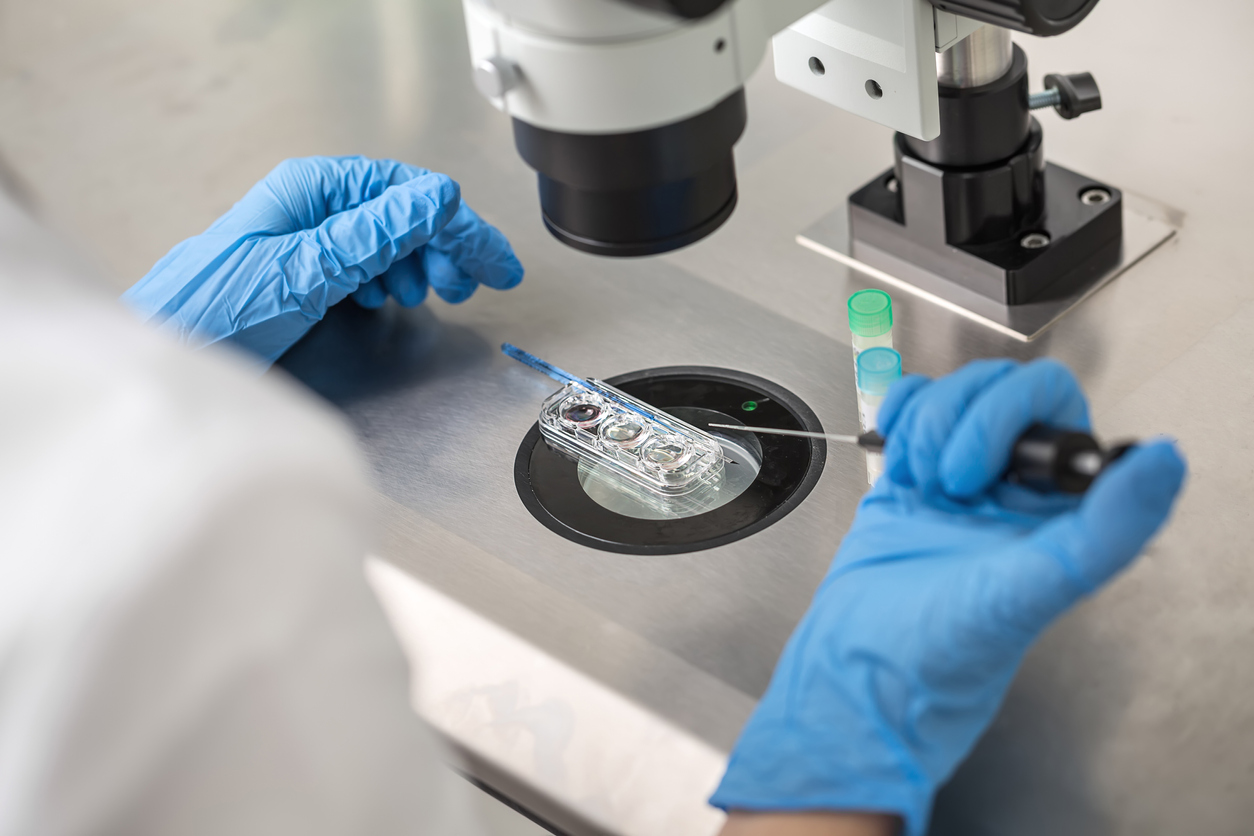A Comprehensive Guide to Advanced IVF Options

Many couples and individuals who are having trouble conceiving are already cognizant of what an in vitro fertilization (IVF) procedure entails by the time they start seeking out fertility treatments. Not only is IVF often the main treatment option that appears when people start doing their research, but it’s also a well-publicized procedure that most people are aware of.
However, IVF is only part of the story. While the procedure can be greatly effective on its own for many people, there are also a number of advanced treatment options that can be used in conjunction with IVF in order to improve your chances of successfully conceiving a child and having a healthy pregnancy. These advanced IVF treatment options are generally recommended in very specific scenarios.
Intracytoplasmic Sperm Injection (ICSI)
In traditional IVF, mature eggs are extracted from the woman’s ovaries and isolated into individual containers. Each egg is then combined with a semen sample, which consists of many sperm. In many cases, this results in one of the sperm entering and fertilizing the egg on its own.
In intracytoplasmic sperm injection (ICSI), instead of being brought together in hopes of fertilization occurring “naturally,” a single sperm is injected directly into the egg using a very small and sharp hollow needle. This ultimately increases your chances of successful fertilization. ICSI is typically recommended in a number of scenarios, including cases where:
- There are male factor infertility issues, such as oligospermia (very low sperm count), asthenospermia (poor sperm motility), or teratozoospermia (abnormal sperm morphology)
- Previous IVF cycles have resulted in no fertilization
- Only a few eggs are retrieved from the female patient
- Frozen eggs are being used
Genetic Testing
In some cases, genetic testing procedures such as preimplantation genetic screening (PGS) and preimplantation genetic diagnosis (PGD) can improve the chances of having a successful pregnancy. While the two phrases are sometimes used interchangeably, PGS and PGD are slightly different and are used in different scenarios.
In both PGS and PGD, embryos are created via IVF. A small biopsy is then performed on the resulting embryo on either the third or fifth day of development.
In PGS, the test looks for an irregular chromosome count, which can lead to miscarriages or certain genetic conditions. Some of the most common scenarios in which PGS is utilized are when there is a history of recurrent pregnancy losses or repeated failure of embryo implantation during IVF. It is also sometimes used for gender selection. PGD tests for specific genetic defects. This is most commonly used in cases where one of the intended parents carries a genetic disease or has a family history of genetic disorders.
Learn More
Although IVF is often successful for many people, some cases may call for advanced options such as ICSI or genetic testing. If you are in need of advanced IVF options or simply want to learn more about these procedures, contact Chicago IVF today.

